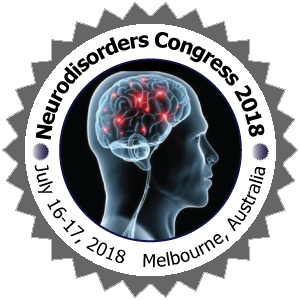
Azin Ebrahim Amini
University of Toronto, Canada
Title: Astrocytic gap junctions contribute to potassium redistribution over the neocortex
Biography
Biography: Azin Ebrahim Amini
Abstract
Extracellular potassium ion concentration ([K]e) is tightly regulated throughout the brain because it has a major impact on brain functionality. Potassium concentration is disrupted in many brain diseases such as stroke and epilepsy. My project is designed base on a well-developed experimental platform to investigate the effects of extracellular potassium redistribution in physiological states. All experiments were conducted in vivo in mouse neocortex. 2 double-barreled K-sensitive electrodes coupled with Local Field Potential (LFP) electrodes were placed 4 mm apart. 50 mM KCl solution was injected focally closer to one of the K-LFP electrodes. [K]e levels and LFP were measured in two different scenarios: (1) Pharmacological intervention (gap junction blockage) and (2) optical intervention (optogentics). Focally increased [K]e was associated with a transient depolarization which in turn spreads into neighboring tissues so called spreading depolarization. Gap junctional blockade in the peri-injection site simultaneously increased the amplitude and duration of the local [K]e response and the local field response was greatly prolonged. While in the remote injection site, [K]e response was decreased after gap junctional blockage application. Optical stimulation decreased the [K]e both in the peri-injection and remote site. Our preliminary results are evidence of slow K redistribution (take for minutes) throughout the astrocytic syncytium which is partly mediated via astrocytic gap junctions. Potassium redistribution across a large area of the cortex is not a well-studied area because most tudies have limited their focus on focal potassium dynamics. In this project we are addressing this gap using novel tools to lucidate potassium redistribution dynamics.

